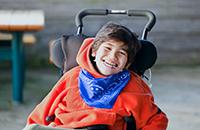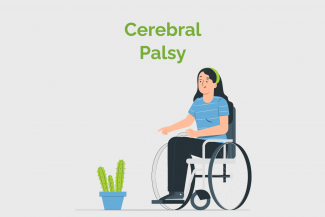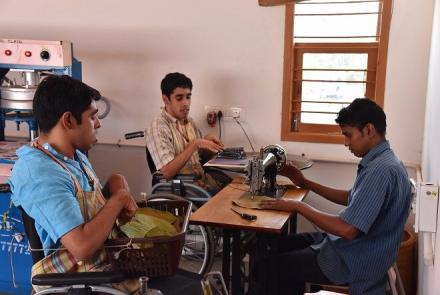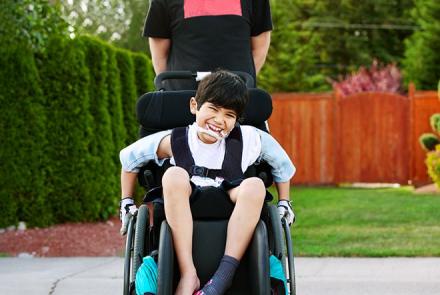
Cerebral palsy affects each person differently. The person may lead a fairly normal life with little assistance or need help with everyday activities. For instance, they may suffer from an inability to control body movements, have problems with balance and seizures, may have trouble swallowing or speaking, or may be intellectually impaired. You will need to tailor the care to the needs of the person. You may need to consider some of the following:
- Understand the patient's communication style. Some people with cerebral palsy may rely on non-verbal communication like eye contact, facial expressions or even signing.
- If the person has difficulty swallowing, for instance, then food preparation must include cutting the food into small bites or liquefying it.
- Individualised tips for dressing to best assist the patient – it’s best to start with the patient’s stronger side
- How to put on orthotics
- Purchasing a bath seat or swimming tube to help keep the person secure and relaxed while bathing
Parent’s role in physiotherapy
- Exercise the child's limbs through interactive play
- Set times for active physical play with members of the family
- Encourage young children to move and play, such as by banging pots together and slapping their hands on the table
- Encourage the child to play with others who are the same.
Read about the importance of early intervention: http://www.patientsengage.com/conditions/cerebral-palsy-importance-early-intervention
If you are hiring a caregiver, make sure that person is trained in how to look after the patient and discuss with them what strategies have worked in the past.
Doctors to be consulted:
- Paediatrician
- Neurologist
- Orthopaedic surgeon
- Ophthalmologist
- Otologist (ear specialist)
- Rehabilitation specialist














